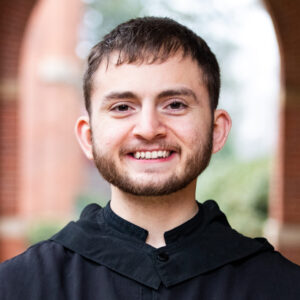As Advent draws near, the readings at Mass become more and more eschatological, focusing on the second coming and the final judgment. We are told that Christ will do unto us as we did to the poorest and most vulnerable among us. We are told to be ready, like good servants prepared for their master’s return. We are warned of the punishment that awaits us if we do not forgive others as God wishes to forgive us.
These New Testament readings are memorable and striking, and the basis for many older hymns intended to put the fear of God into worshippers. One of these, formerly the sequence for the Mass for the Dead, is now suggested as an office hymn for the last week of Ordinary Time:
Oh, what fear man's bosom rendeth, When from heaven the Judge descendeth, On whose sentence all dependeth.
As this hymn suggests, an awareness of the eternal consequences of our choices on earth is certainly important. And the Dies Irae is ultimately a beautiful prayer for mercy. At the end, the writer implores God grant eternal rest to guilty humankind:
O God of majesty, nourishing light of the Trinity, join us with the blessed. Amen.
But the Dies Irae is not our only image of God’s judgment. The Christmas liturgy uses psalms 96-98 as responsorial psalms. These psalms speak of God coming to judge in power and all creation rising in joy to meet him. Consider psalm 98:
The LORD has made known his salvation, has shown his deliverance to the nations; he has made known his merciful love and his truth for the house of Israel. All the ends of the earth have seen the salvation of our God.
The Lord has made known his salvation, his merciful love, and his truth to the whole world! These are God’s most fundamental qualities, and knowledge of them causes the entire world to rejoice, as the psalm continues:
Shout to the LORD, all the earth! Break forth into joyous song and sing out your praise! Sing psalms to the LORD with the harp, with the harp and the sound of song. with trumpets and the sound of the horn raise a shout before the King, the LORD! Let the sea and all within it thunder, the world and those who dwell in it. let the rivers clap their hands and the hills ring out their joy at the presence of the LORD, for he comes, he comes to judge the earth.
Here, God’s judgment is presented as something to rejoice at. Even the rivers and hills cannot contain themselves. The rejoicing of the hills at God’s coming foreshadows Jesus’ triumphant entry into Jerusalem: when the city leaders tell him to silence his jubilant followers, he responds, “If they were silent, the very stones would cry out!” (Luke 19:40).
All in all, this psalm gives us an ecstatic picture of the Lord’s coming, all the more striking when it is a part of the Christmas liturgy, which celebrates, not God coming in power, but the silent entry of a poor, unknown infant into the world. The repetition in the last stanza — “for he comes, he comes to judge the earth!” — gives one the sense that the psalmist is stumbling over his words for excitement.
And then the psalm concludes:
He will judge the world in justice, he will govern the peoples with his truth.
God’s judgment is true and just, and so it is good, so it is salvific. That does not mean it’s not terrifying for some. As Psalm 76 states: “The earth in terror was still / when you arose, O God, to judge / to save all the humble of the earth.”
God judges to save. To save the humble from the proud and the mighty. That means that we can rejoice at his judgment insofar as we are lowly and humble, insofar as we are in solidarity with those on the margins of society. But inasmuch as we lead others to sin, inasmuch as we dominate or oppress others, we should fear. Because everything else in creation will rejoice when God arises to cast down the proud and raise up the lowly.

Br. Chrysostom Sica professed junior vows in January 2022. His duties include serving as Master of Ceremonies, playing organ for festal masses during the week, taking care of the garden, working in the college, and studying philosophy. Hailing from Moscow, Pennsylvania, he is militantly proud of his northern heritage.